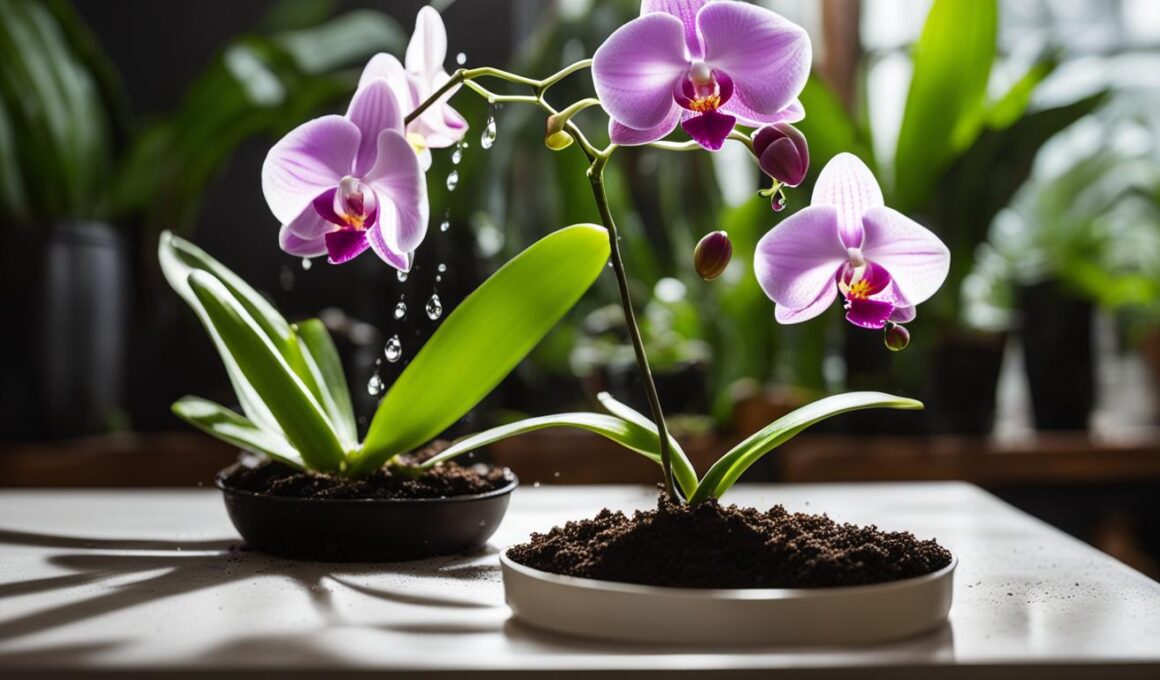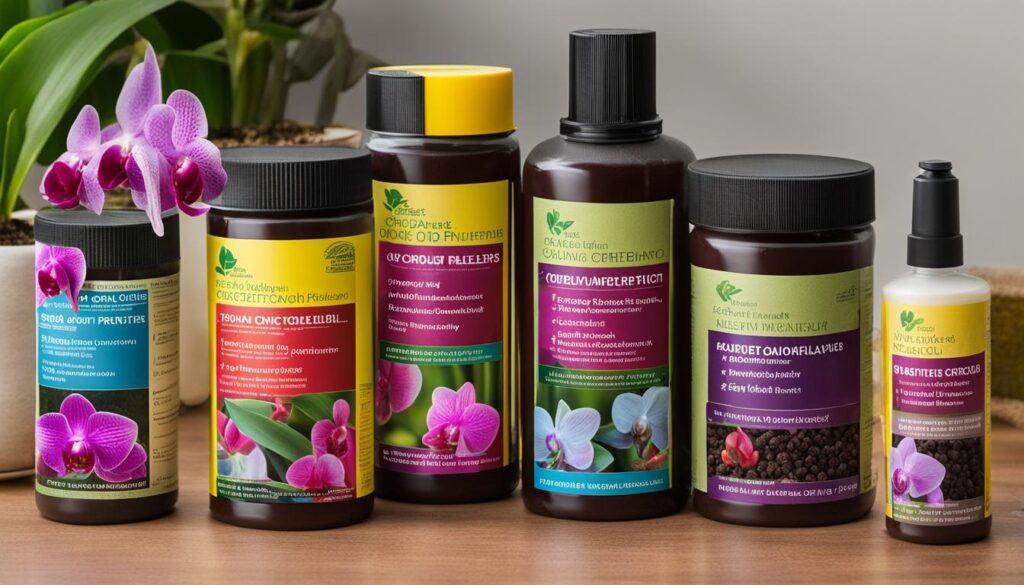Orchids are stunning plants that require proper care to thrive and produce vibrant blooms. One essential aspect of orchid care is fertilization. Fertilizing your orchids provides them with the necessary nutrients for healthy leaf growth and abundant flowers. In this guide, we will explore the best practices and tips for orchid fertilization, ensuring that you have all the information you need to keep your orchids strong and beautiful.
Feeding orchids is not a one-size-fits-all approach. Different orchid species have varying fertilization needs based on their growth cycles and specific characteristics. However, a general guideline is to feed your orchids weakly and weekly, using a diluted fertilizer mixture. This helps to avoid overfeeding and ensures that the orchids receive the necessary nutrients without causing harm.
Choosing the right fertilizer for your orchids is crucial. It is recommended to use a well-balanced fertilizer that contains the essential macronutrients (such as nitrogen, phosphorus, and potassium) and micronutrients (like iron, manganese, and boron). These nutrients are vital for promoting overall plant health, vigorous root development, lush foliage, and enhanced flower production.
When fertilizing your orchids, it is important to consider the water quality as well. Using distilled water or rainwater is preferable, as tap water may contain minerals or chemicals that can affect the orchids’ growth. By providing your orchids with clean water and the appropriate fertilizer, you are giving them the best chance to thrive.
Overfeeding your orchids can have negative consequences. It is advisable to fertilize them when they are actively growing, during the vegetative growth period, before the appearance of flower buds. During dormancy or when buds are forming, it is best to withhold fertilization.
By understanding the growth cycle of your orchids and observing their growth patterns, you can determine the right time to fertilize. Each orchid species may have specific feeding requirements, so it is essential to research and learn about your orchids’ individual needs.
Overall, fertilizing your orchids correctly and consistently will contribute to their overall health and vitality. With the right fertilization regimen and attention to their specific needs, your orchids will reward you with stunning blooms and bring beauty to your home or garden.
Choosing the Right Fertilizer for Orchids
When it comes to fertilizing your orchids, selecting the best orchid fertilizers is crucial for their health and growth. Orchids have specific nutrient requirements to thrive, including macronutrients like nitrogen, phosphorus, and potassium, as well as micronutrients such as iron, manganese, and boron.
A balanced fertilizer that contains these essential nutrients is key to promoting blooms and overall plant vitality. Nitrogen helps stimulate lush foliage growth, phosphorus enhances flower production, and potassium supports root development and overall plant vigor.
For the best results, it’s recommended to use urea-free or low-urea fertilizers for orchids, as urea is not readily available to epiphytic orchids. Organic fertilizers made from natural sources, like fish emulsion or seaweed extract, can also be used. However, keep in mind that they have lower nutrient concentrations and require biological processes for activation.
Inorganic fertilizers are a reliable choice for orchids and offer better control over nutrient concentrations. Avoid using slow-release fertilizers, as they can potentially burn the delicate roots of orchids and are more suitable for plants growing in soil.
When selecting a fertilizer, pay attention to the nutrient ratios indicated on the label. A well-balanced fertilizer with equal percentages of nitrogen, phosphorus, and potassium is generally suitable for most orchids.
Using a complete, balanced fertilizer simplifies the fertilization process for your orchid collection. It ensures that your plants receive all the necessary nutrients in the right proportions, allowing them to thrive and produce stunning blooms.
Conclusion
In summary, proper fertilization is crucial for promoting the healthy growth and beautiful blooms of orchids. By understanding the specific feeding needs of orchids and following the right fertilization techniques, you can ensure the success of your orchid collection. Remember to use a well-balanced fertilizer that contains the necessary macronutrients and micronutrients for optimal plant health.
During the active growth periods of your orchids, consider implementing the weekly weakly feeding method with a diluted fertilizer mixture. This approach helps prevent overfeeding, which can weaken plants and reduce flowering. Additionally, avoid using tap water with high mineral content or chlorine when mixing your fertilizer solutions, as it may harm your orchids. Instead, opt for distilled water or rainwater.
When choosing a fertilizer, whether organic or inorganic, be sure to adjust the concentration based on the specific needs of your orchids. This will help ensure they receive the appropriate amount of nutrients. By following these tips and providing the right care, you can enjoy healthy orchids that showcase vibrant, stunning blooms.










